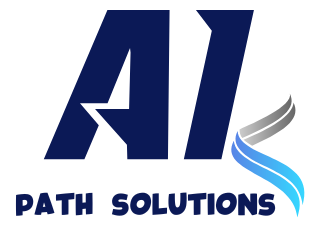Introduction
Artificial intelligence (AI) is reshaping our world, offering unprecedented opportunities for innovation and efficiency. However, as this technology becomes more integrated into our daily lives, it also raises critical ethical questions. This article explores the key ethical dilemmas associated with AI, including algorithmic bias, data privacy, the impact of automation on employment, and the responsibilities of developers and regulators.
Understanding Algorithmic Bias
Algorithmic bias occurs when AI systems produce results that are systematically prejudiced due to flawed data or biased algorithms. For example, hiring algorithms may favor candidates from specific demographic groups if their training data reflects historical hiring patterns that are discriminatory. Such biases can have profound implications, leading to perpetuated inequalities in hiring, law enforcement, and credit scoring.
To combat algorithmic bias, developers should focus on creating diverse and representative datasets, implement fairness audits, and continuously monitor AI outcomes. Transparency in algorithmic decision-making processes is also crucial, allowing stakeholders to understand how decisions are made.
The Importance of Data Privacy
Data privacy is a significant concern in the age of AI, as many applications rely on vast amounts of personal data. Issues arise regarding consent, ownership, and the potential for data misuse. High-profile scandals involving data breaches have heightened public awareness of privacy concerns, prompting calls for stricter regulations.
Regulations like the General Data Protection Regulation (GDPR) in the EU aim to protect individual privacy rights and set clear standards for data handling. AI developers must ensure compliance with such regulations and adopt best practices for data management to maintain public trust.
Automation and Employment: A Double-Edged Sword
AI and automation have the potential to revolutionize industries by enhancing productivity and reducing costs. However, this technological shift also raises fears about job displacement. Routine and manual jobs are particularly vulnerable, leading to concerns about rising unemployment and economic inequality.
To address these challenges, stakeholders must prioritize education and reskilling initiatives. Governments and organizations should invest in training programs that prepare the workforce for new roles created by AI, ensuring that the benefits of automation are equitably distributed.
Redefining Human Interaction
As AI systems become more prevalent, they alter the way we interact with technology and each other. While AI can enhance communication and provide personalized experiences, there is a risk of diminishing human interaction. The reliance on AI for companionship or decision-making may lead to social isolation or a decrease in empathy.
It is essential to develop AI systems that complement rather than replace human relationships. Designers should consider the social implications of their technologies, aiming to foster meaningful connections while leveraging the benefits of AI.
The Role of AI Developers and Ethical Frameworks
AI developers bear a significant responsibility in shaping the ethical landscape of technology. They must integrate ethical considerations throughout the development process, focusing on principles such as:
- Accountability: Developers should take responsibility for the outcomes of their AI systems and the impact on users and society.
- Transparency: Clear communication about how AI systems operate and make decisions is vital for building trust.
- Inclusivity: Engaging diverse perspectives in the development process can help ensure that AI serves the needs of all stakeholders.
The Need for Regulatory Frameworks
As AI continues to evolve, effective regulatory frameworks are essential for guiding its ethical use. Policymakers, industry leaders, and civil society must collaborate to create regulations that address the unique challenges posed by AI. These regulations should prioritize individual rights, fairness, and accountability, ensuring that AI technologies are developed and deployed responsibly.
Adaptive regulations that can keep pace with technological advancements will be critical in addressing emerging ethical dilemmas and protecting society from potential harms.
Conclusion
The rapid advancement of AI technology presents both significant opportunities and ethical challenges. As we embrace the benefits of AI, it is crucial to navigate the ethical landscape thoughtfully. By addressing issues such as algorithmic bias, data privacy, and the implications of automation, we can harness AI’s power for good while minimizing harm. Through collaboration among developers, regulators, and society, we can create a future where AI serves humanity equitably and responsibly.

